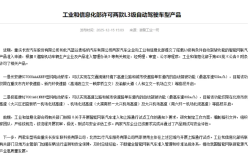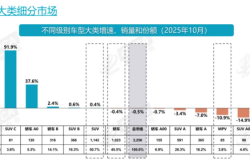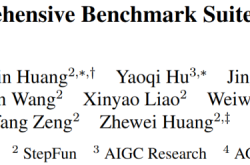Deepening the 'AI+' Initiative: Sectors and Enterprises Set to Soar
![]() 08/28 2025
08/28 2025
![]() 438
438
Recently, the State Council officially unveiled the 'Opinions on Deepening the Implementation of the "AI+" Initiative,' establishing a comprehensive, multi-tiered AI empowerment framework spanning scientific research to daily life. This initiative also bolsters foundational support capabilities, including models, data, and computing power, underscoring AI's progression from technological exploration to deep integration with the real economy.
The 'Action Opinions' delineate a 'three-phase' roadmap for development:
By 2027, AI will achieve broad and deep integration with six key areas, with penetration rates of new-generation smart terminals and intelligent agents exceeding 70%. Core industries in the smart economy will witness rapid growth, AI's role in public governance will markedly improve, and the AI open cooperation system will continually evolve.
By 2030, AI will comprehensively propel high-quality development in China, with penetration rates of new-generation smart terminals and intelligent agents surpassing 90%. The smart economy will emerge as a vital growth driver for China's economy, fostering widespread technology access and achievement sharing.
By 2035, China will fully enter a new era of smart economy and smart society development, providing robust support for the basic realization of socialist modernization.
01
'AI+' Enters a Pivotal Implementation Window
As the linchpin driving a new wave of technological revolution and industrial transformation, AI's strategic significance has long been elevated to the national level. In 2024, the 'AI+' initiative was first incorporated into the Government Work Report, and this year's report reaffirms its commitment to furthering this initiative.
Spurred by the national strategy, the first half of 2025 has emerged as a critical window for local governments to密集出台 policies related to the 'AI+' initiative. Leveraging their respective industrial bases and resource endowments, various regions have fostered a vibrant and competitive development landscape.
According to Flint Create Industrial Data Center, over the past six months, more than 20 provinces and cities, including Beijing, Shanghai, Guangdong, Zhejiang, Shandong, and Sichuan, have issued special action plans or policy measures.
Table: Relevant 'AI+' Policies Across Regions in the First Half of the Year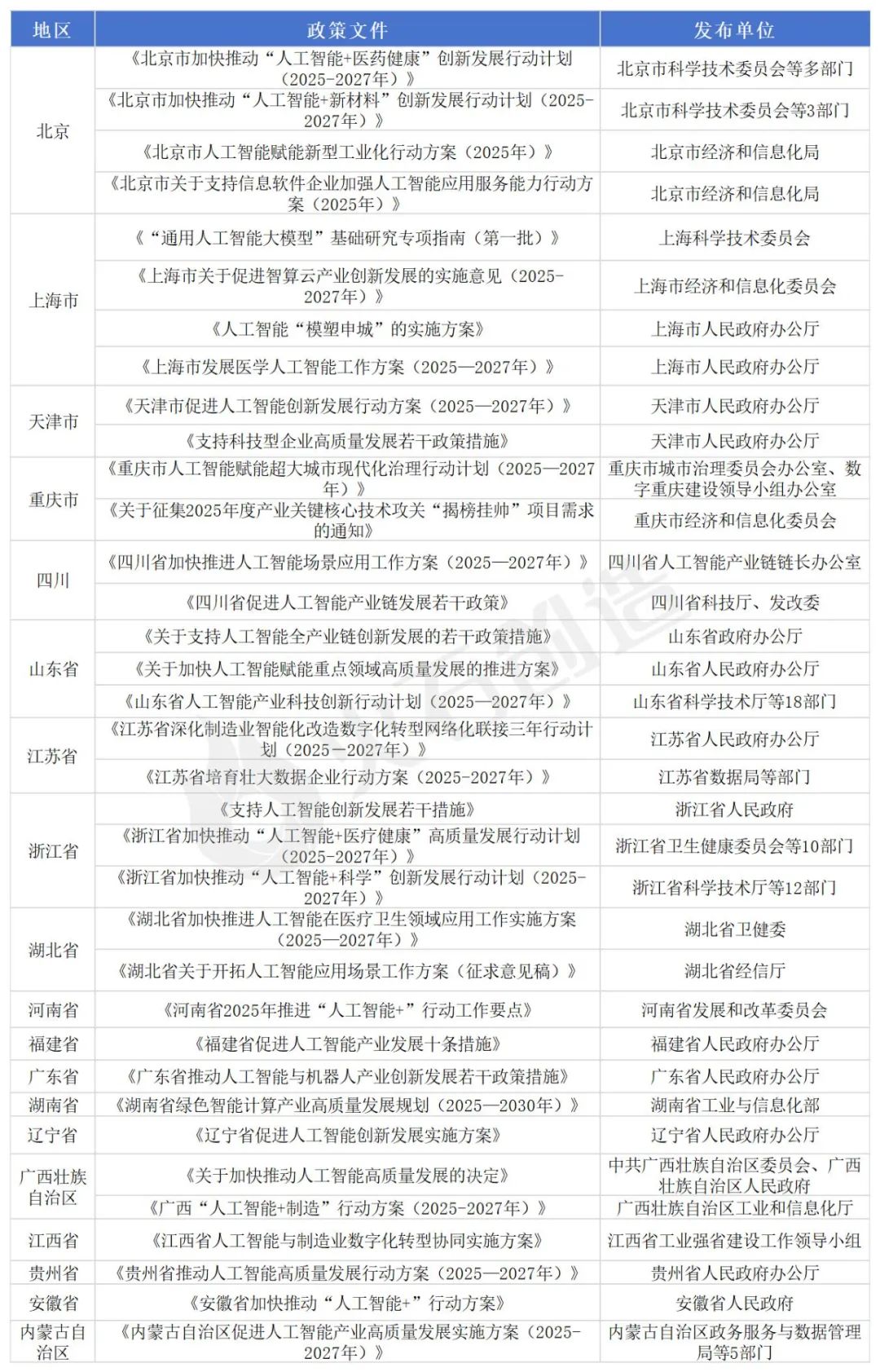
Source: Flint Create Industrial Data Center
These policies collectively emphasize scenario applications, industrial ecosystems, and foundational support. Many regions have issued multiple policies within just six months, vigorously advancing AI development.
Amidst this AI industry surge, regional competition for investment attraction and enterprise services is intense. Policies play a crucial role in monitoring the business environment. However, relying solely on manpower to provide timely and accurate policy consultations to millions of enterprises is challenging. The inability to promptly deliver and precisely match policies to enterprises significantly diminishes policy effectiveness. Additionally, some regions directly copy policy templates from others, leading to low-level, repetitive competition. Benchmarking, learning, adapting to local conditions, and optimizing resource allocation have become paramount.
This is where AI excels. The Flint Create Policy Intelligent Agent seamlessly integrates big data, providing an intelligent engine for the entire lifecycle of policy formulation, deduction, evaluation, adjustment, and matching. Before policy release, it conducts multi-dimensional deductions to furnish quantitative evidence for policy fulfillment. For enterprises, it offers services such as policy consultation, application suggestions, and matching recommendations, enabling the government to achieve 'precision policy delivery' and assisting enterprises in 'fully benefiting from policies,' thereby comprehensively enhancing the intelligence and precision of policy services.
02
Which Sectors Will Thrive Under Policy Incentives?
Currently, AI technology is evolving at an unprecedented pace, transitioning from the exploration stage to the value creation stage, profoundly reshaping various sectors and industries across the economy and society. Nevertheless, challenges persist, including disparities in AI value perception, inadequate supply-demand connections, and the 'last mile' hurdle in application implementation. In response, the 'Action Opinions' pinpoint six key areas for the first time, precisely navigating the direction and implementation path of AI applications: 'AI+' science and technology, 'AI+' industrial development, 'AI+' consumption quality enhancement, 'AI+' people's livelihood and well-being, 'AI+' governance capabilities, and 'AI+' global cooperation. Under policy incentives, which sectors will genuinely soar in this era? Flint Create has compiled the primary areas for reference:
Table: Six Promising Sectors and Representative Enterprises
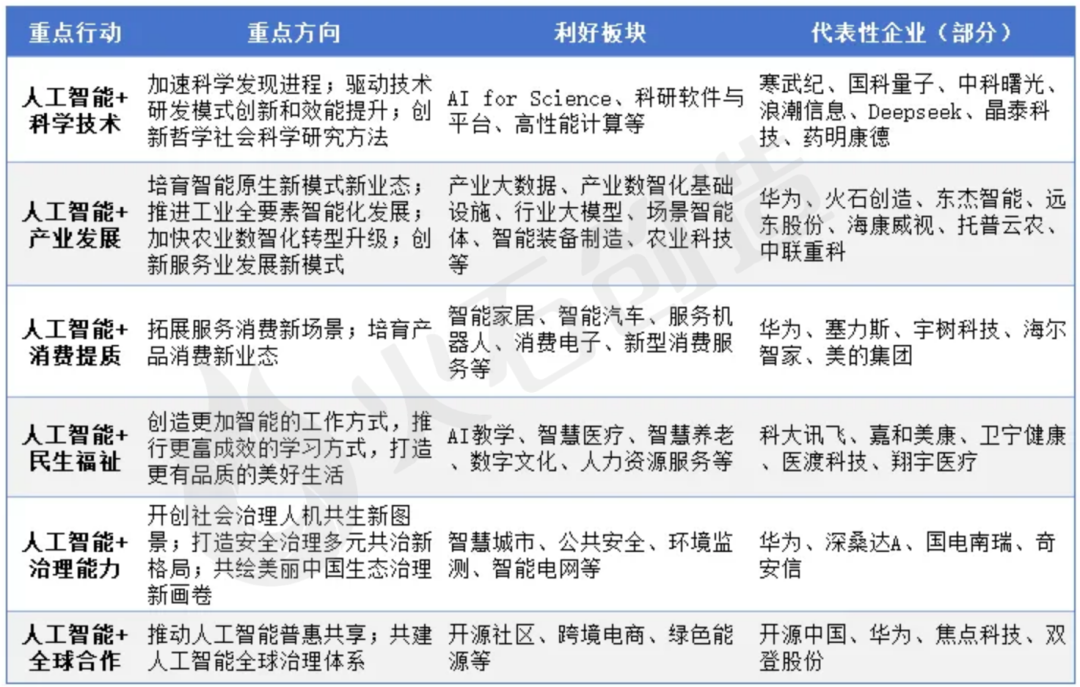
Source: Flint Create Industrial Data Center
As the national level continues to unveil favorable policies and regions accelerate their layouts, the 'AI+' initiative is transitioning from a strategic vision to a new stage of widespread implementation. This profound transformation, driven by technology and led by policy, will not only reshape the industrial landscape, enhance governance effectiveness, and enrich people's livelihood experiences but will also infuse strong momentum into high-quality economic development.


